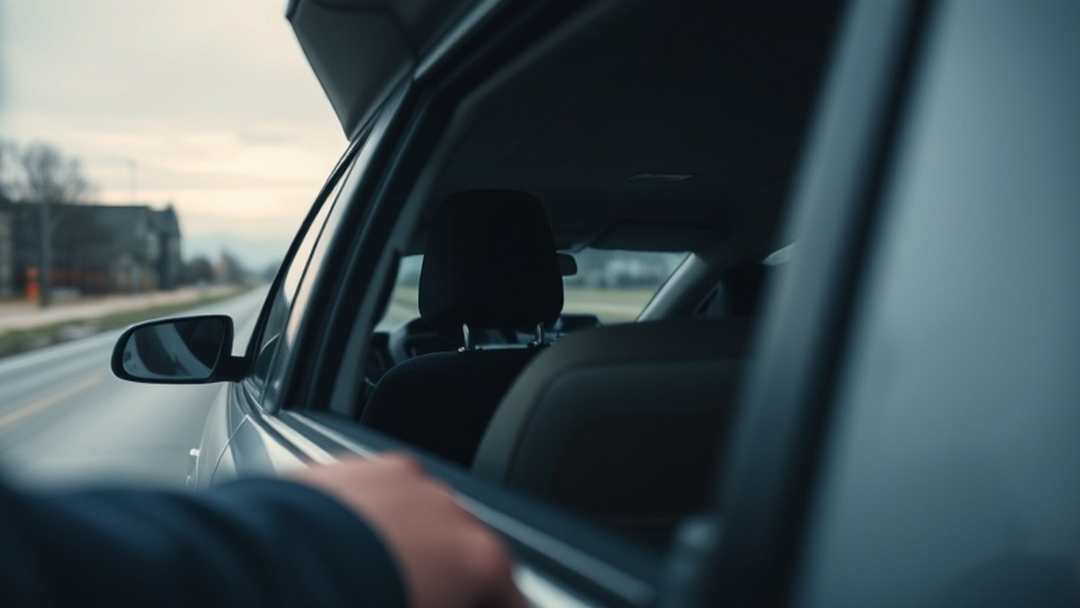If you are pulled over for suspected drunk driving you are probably going to be arrested. The less you say - the better off you are in the long run. If you find yourself being pulled over for suspected DUI, ensure you pull over safely to the roadside, maintain a...

How DUI Charges Impact Your Child’s Future
In Michigan driving is considered a privilege. with this privilege comes immense responsibility, especially when it comes to driving under the influence (DUI) as well as other responsibilities.
The consequences of youth DUI extend far beyond the immediate legal penalties.
DUI means “Driving Under the Influence”.
This could mean alcohol, marijuana, prescription drugs or anything they may consider that would impair your driving.
A DUI can leave a lasting impact on young lives, affecting everything from educational opportunities to future career prospects.
In such dire situations, seeking legal counsel becomes not just an option, but a crucial necessity.
Real Life Reality
Every year, countless young drivers find themselves facing DUI charges, often due to a combination of inexperience, peer pressure, and poor decision-making.
The ramifications of such actions can be devastating. Beyond the legal repercussions—which may include fines, license suspension, and even imprisonment—youth DUI can have far-reaching consequences.
Educational Setbacks
For many young individuals, education is the gateway to future success. However, a DUI conviction can derail even the most promising academic trajectories.
College admissions officers and scholarship committees often scrutinize applicants’ criminal records, and a DUI conviction can significantly diminish one’s chances of acceptance or financial aid.
Additionally, some educational institutions may impose disciplinary measures, such as probation or expulsion, further jeopardizing a student’s academic pursuits.
Careers
The reverberations of a youth DUI can extend well into adulthood, impacting career opportunities and professional advancement.
Many employers conduct background checks as part of the hiring process, and a DUI conviction may raise red flags, particularly in fields that require driving or involve sensitive responsibilities.
Moreover, certain professions, such as law enforcement or healthcare, have strict ethical standards that may preclude individuals with DUI convictions from employment or licensure.
Personal and Financial Strain
The long term fallout from a DUI goes beyond its immediate legal and professional implications, taking a toll on one’s personal and financial well-being.
Fees, court costs, and increased insurance premiums can exact a heavy financial burden, straining already precarious budgets.
In the long run it may be a better option to fight the charge and get it reduced with an experienced attorney rather than submit to a guilty plea.
Moreover, the stigma associated with DUI can lead to social ostracization and strained relationships with family and friends, exacerbating feelings of isolation and shame.
Why You Need Legal Representation
In the face of such daunting challenges, hiring an experienced attorney is paramount. A skilled DUI defense lawyer can provide invaluable guidance and advocacy, working tirelessly to mitigate the consequences of youth DUI charges. Here are some compelling reasons to seek legal representation:
1. Expertise in DUI Law: Navigating the complexities of DUI law requires specialized knowledge and expertise. A seasoned attorney understands the nuances of local statutes, procedural rules, and case precedents, allowing them to mount a strategic defense tailored to the unique circumstances of each case.
2. Protection of Rights: The legal system can be intimidating, especially for young defendants unfamiliar with their rights and legal procedures. A competent attorney serves as a staunch advocate, safeguarding their clients’ constitutional rights and ensuring fair treatment throughout the legal process.
3. Mitigation of Penalties: While the consequences of youth DUI can be severe, they are not set in stone. A skilled attorney can explore avenues for mitigating penalties, such as negotiating plea bargains, pursuing alternative sentencing options, or challenging the validity of evidence against the defendant.
4. Advocacy in Court: Facing DUI charges in court can be a daunting prospect, but with the right legal representation, defendants can level the playing field. A proficient attorney will skillfully present evidence, cross-examine witnesses, and argue legal points on behalf of their clients, maximizing the chances of a favorable outcome.
5. Support and Guidance: Beyond their legal expertise, attorneys also provide invaluable support and guidance to their clients during what is often a tumultuous and stressful time. From explaining legal proceedings to offering emotional reassurance, a compassionate attorney can help alleviate some of the anxiety and uncertainty associated with DUI charges.
Related Articles
What do you do when you are pulled over for suspected DUI?
One of Michigan’s Top DUI Attorneys
We aggressively defend all aspects of traffic law, from simple civil infractions to more serious alcohol and drug-related offenses. Don't wait till the last second to get an attorney. That's how you lose.Why Attorney Michael Komorn is one of Michigan’s Top DUI...
Michigan DUI Laws and Consequences – Second Offense
Michigan DUI Laws and Consequences – Second Offense Operating Under the Influence (OUI) is a serious offense in Michigan. If someone is caught driving under the influence of alcohol or drugs, they can face severe penalties. When it comes to a second offense, the...
Federal Ban on Owning Firearms by Cannabis Consumers is Unconstitutional Court Says
Federal charges against a non-violent, cannabis-using gun owner were unconstitutional.A federal appeals court panel upheld a lower court's ruling on Wednesday, declaring that federal charges against a non-violent, cannabis-using gun owner were unconstitutional. “The...
More Posts

If I renounce my US citizenship can I get it back?
Venezuela or Bust If I renounce my U.S. citizenship can I get it back?Renouncing U.S. citizenship is a serious legal action. It involves voluntarily giving up your status as a U.S. citizen, usually by signing an oath of renunciation at a U.S. embassy or consulate...

New Laws in Effect for Michigan in 2025
Some laws in effect in 2025 "Enacted by the People of Michigan" Here we go...Minimum wage Improved Workforce Opportunity Wage Act - Michigan's minimum wage will increase twice during 2025, per a 2018 Supreme Court ruling. Starting Jan. 1, 2025, the standard minimum...

The Police Took Your Cellphone – Now What?
Everything you have and say will be evidence used against you. The Police took your cellphone - Now what?After your arrest, you arrive at the police station where you go through the booking process, and your cellphone is taken from you. Once you are released, your...

Feeling Bullied? Here’s Michigan’s Anti Bullying Laws.
Michigan Anti-Bullying Laws & Policies Components of State Anti-Bullying Laws and Regulations How are bullying and cyberbullying defined in Michigan anti-bullying laws and regulations? Michigan anti-bullying laws and regulations include the following...

Former 3M scientist who made unsettling PFAS discovery says bosses deceived her
Gee - What a surprise... When a former 3M scientist discovered the company’s chemicals were in human blood in the general population, she says her bosses misled her to believe it was harmless.3M accused of deceiving its own scientist about PFAS in human blood Hansen...

Drones – What Drones?
Jersey cops launched into the night sky with catapults to throw dreamcatchers at the unknown drones to entangle their props and bring em down! Just kidding - I think.Darrr.. What drones? Those drones pose no threat there are no drones. That's just a balloon,...

Cash For Kids Judge Pardoned (The Kickback Club)
Biden’s commutation for Judge in ‘kids for cash’ scandal should anger the entire universe.Biden’s commutation in ‘kids for cash’ scandal. BY MICHAEL RUBINKAMUpdated 5:32 PM EST, December 13, 2024A judge implicated in one of the most notorious judicial scandals in U.S....

How Much Does It Cost To Hire a Criminal Defense Attorney?
Don't do the crime - if you can't pay the price.Average Flat Fees. Some criminal defense attorneys charge a flat fee for certain types of cases, instead of billing by the hour. This may or may not include filing fees, motions, fees, etc. Flat fees include: DUI/DWI –...

What do you do when you are pulled over for suspected DUI?
If you are pulled over for suspected drunk driving you are probably going to be arrested. The less you say - the better off you are in the long run. If you find yourself being pulled over for suspected DUI, ensure you pull over safely to the roadside, maintain a...

Trump plans – How does Cannabis Business fit in?
You work hard. Now get ready to work harder to prepare to give more.President Biden's administration has proposed the reclassification of marijuana from a Schedule I controlled substance to a Schedule III drug, which recognizes its medical benefits. This significant...








